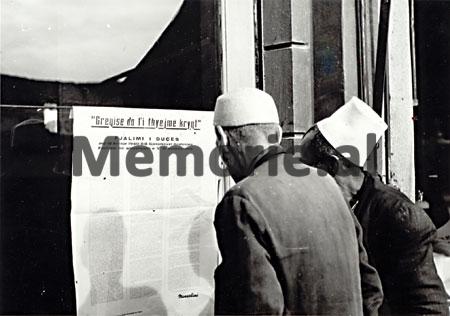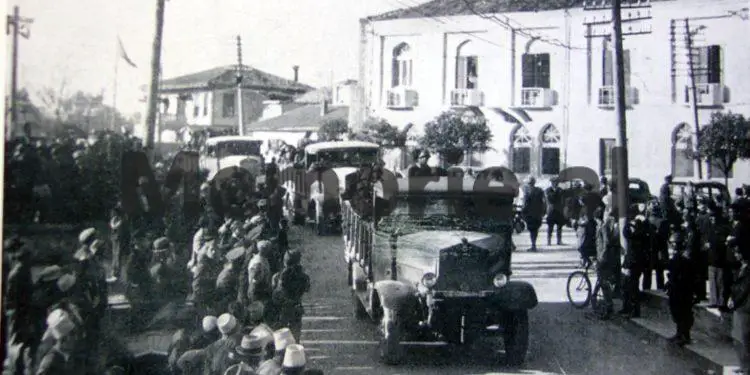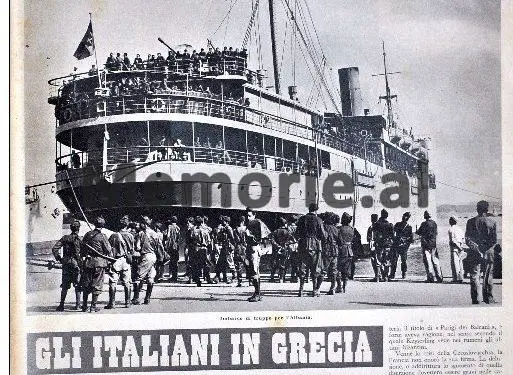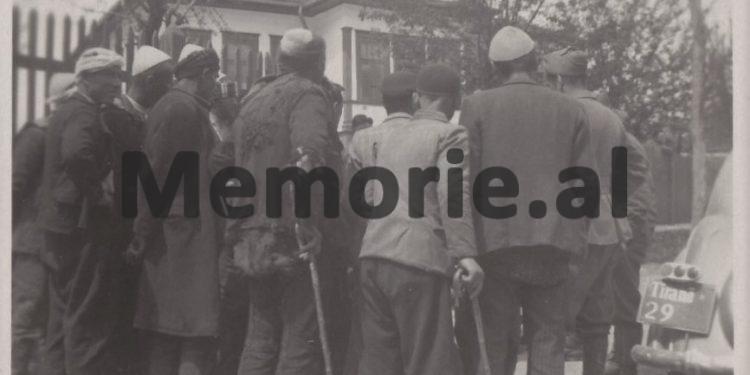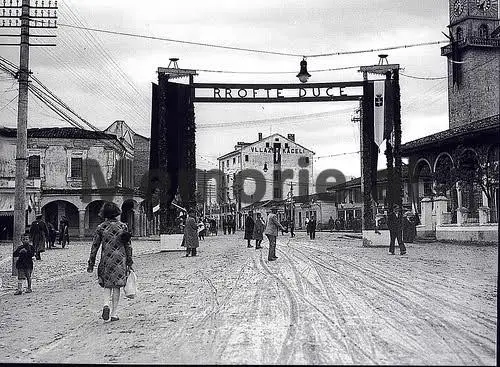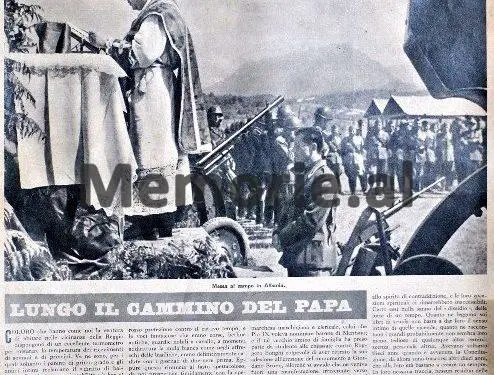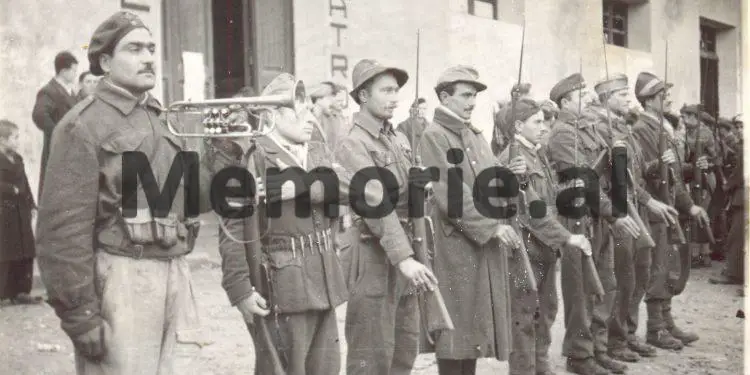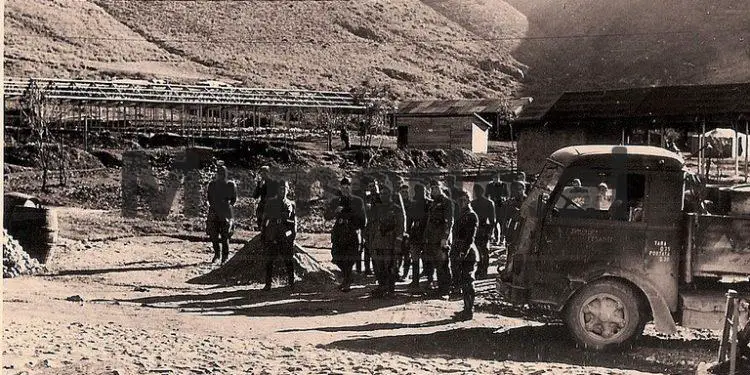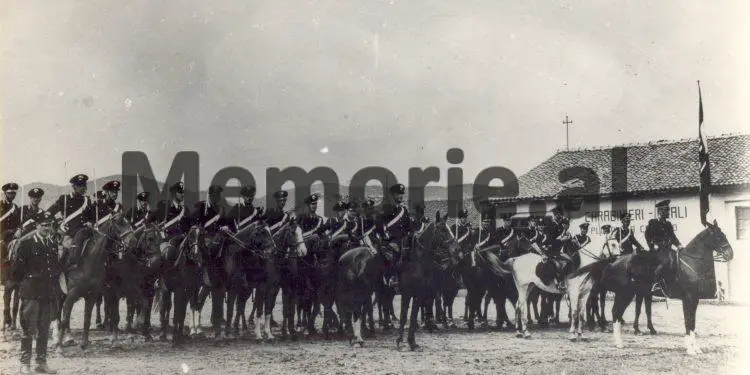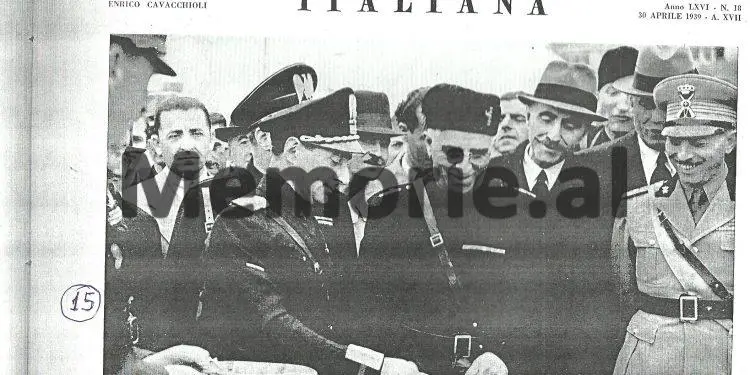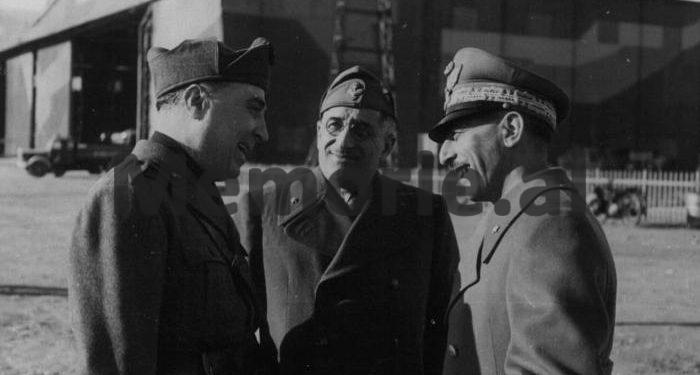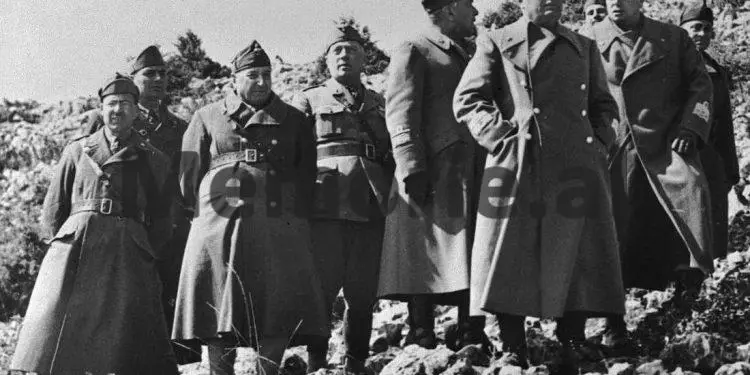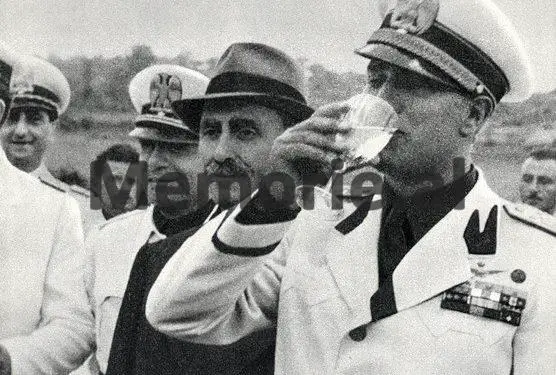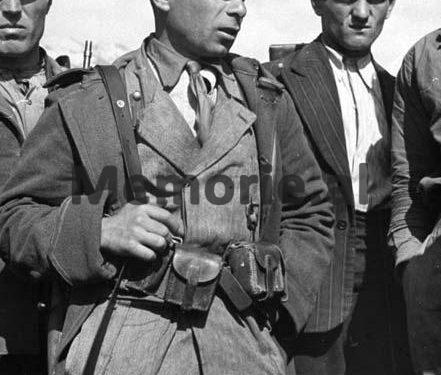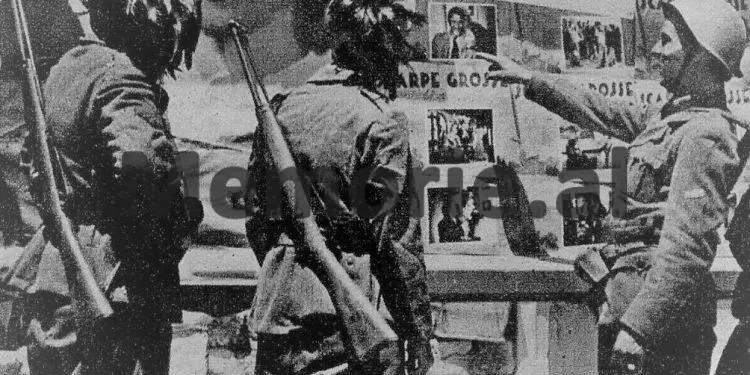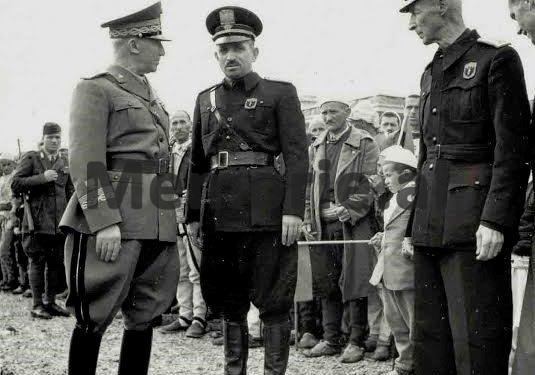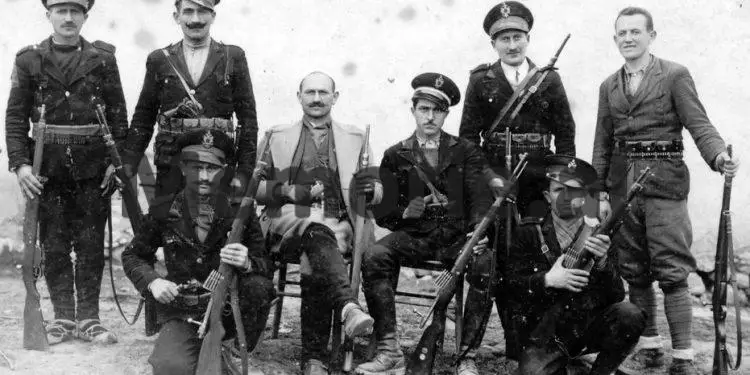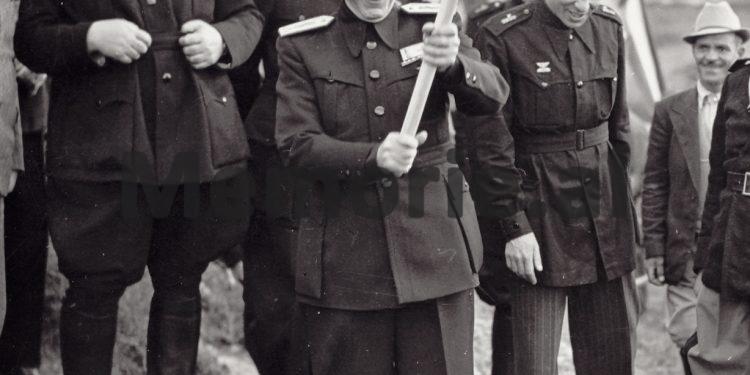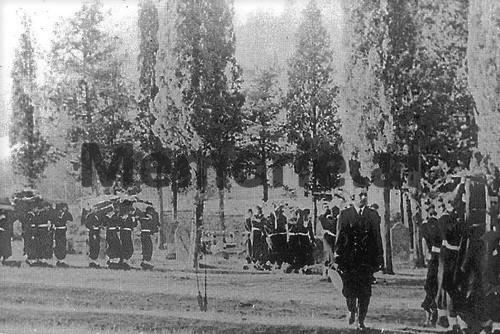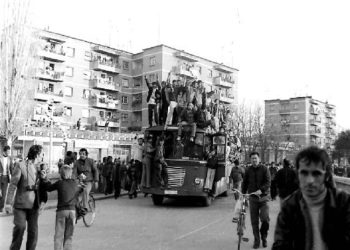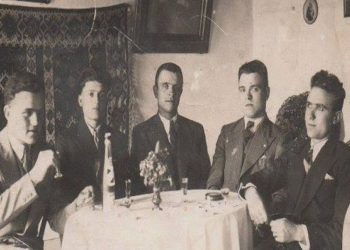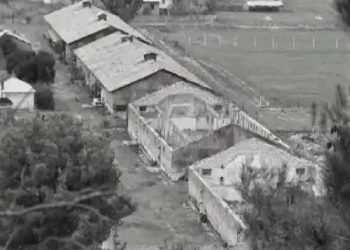Prepared by D. Kaloçi
The first part
Memorie.al/ It have been more than seven decades, since the time when the Greek state decided and still maintains the law of war with Albania. This was done under the pretext that: from Albanian lands the Italian army was allowed to attack Greece. But what is the truth about this event and was the Albanian state responsible for the Italian attack on its southern neighbor?
Regarding this part of the history of Albania, in addition to our scholars and historians, foreign scholars and historians have engaged and published several books, where the most serious are those of Count Ciano, the former Minister of Foreign Affairs of Italy at that time, (“The Ciano Diaries”, “Ciano`s Hidden Diares”, “Ciano`s Diplomatic Papers”) who was one of the main actors of those events, after Benito Mussolini.
These books by him, as well as some other authors, have been used by Bernd J. Fischer (one of the well-known scholars of the history of Albania) in his voluminous book “Albania during the war 1939-1945”, which was published before several years in Tirana. Referring to Fischer, as well as some foreign historians such as: David B. Funderburk, (“Anglo-Albanian relations, 1920-1939) Mack Smith, (” Mussolini`s Roman Empire “) George M. Self (” Foreing relations of Albania “) etc., we will see that: the Albanian state at the time when Greece was attacked by Mussolini’s fascist Italy, had no chance to prevent that attack, as he was occupied for himself under the fascist hooves. undeniably, at that time the two Albanian battalions that were sent to fight on the Greek front, almost all deserted, not wanting to fight against their neighbors.
How was the terrain prepared in Albania?
Towards the beginning of 1940, the Italian Foreign Minister, Count Ciano, seeing that Hitler was being covered in glory after the successive attacks and victories that led to the conquest of several Eastern European countries, thought of exploiting Albania, using it that as the starting point in the attacks that Italy would make on other Balkan countries. As a good connoisseur of the history of the Albanian people and knowing that at the Conference of Ambassadors in 1913 in London, Albania was left outside the political borders, a large part of its territories, Count Ciano, thought to use the Albanian factor following the irredentist line in its plans for the conquest of the Balkans. To carry out this plan, in the first months of the attack on Albania, Count Ciano began to propagate a greater Albania, declaring to Albanian officials that Italy wanted to enlarge Albania’s borders and that the Italians would help the Albanians. in realizing their National aspirations.
According to the memoirs of Count Ciano, published in “Foreing Affaris and Policy Determination”, after his statements, this was done by many other Italian officials, who began to add fuel to the fire of irredentism. Thus, in mid-June 1939, in a speech held in the city of Korça, the Italian Minister of Education, Giuseppe Bottai, compared Albania with Piedmont and spoke about its expansion, in the shortest possible time within two or three years. Regarding this statement, the Yugoslav consul who was in Korça at the time, complained and the Albanian newspapers that followed the speech of the Italian Minister of Education, did not write that passage. Likewise, at the end of June, the Plenipotentiary Greek Representative in Tirana reported to his Foreign Minister that Marshal Badoglio, who was on a visit to Albania, had promised the people who had received and applauded him, “greater prosperity as well as the expansion of Albania’s borders”. The same words that Marshal Badoglio had said in front of the crowds, he had repeated at his reception ceremony and Jakomoni, the Italian ambassador to Albania
Ciano for Greater Albania
Count Ciano, in order to realize his strategic plans and goals for the conquest of the Balkans, thought of engaging the Albanians directly in that issue. During his visit to Albania, in mid-August 1939, according to the orders he had given earlier, he remained satisfied with the degree of mobilization that the Albanians had. In his welcome speech, the Prefect of Tirana expressed his desire for the unification of all Albanians and the creation of a greater Albania, which would come from the help of the great fascist empire. After the speech of the mayor, Count Ciano, promised those present that: Italy would do its best for Albania to realize its deepest aspirations and ended his speech by saying “Viva la grande Albania”. Also, as a result of his orders, the authorities of the Fascist Party had taken care to make numerous slogans with the map of Greater Albania, which were waived by the Italians in black uniforms (the uniform of the Fascist Party) at the rallies that took place in his honor, together with the National Flag of Albania. Between these slogans, the ones that stood out said: “Duce, think of Albanians living everywhere in the world” and “Duce, think of our brothers”.
“According to the powerful German minister in Albania (who was reporting to the then German Foreign Minister, Ribbentrop), who closely followed those rallies, the Albanian demonstrators had long been organized for those demonstrations, waving flags and banners, where it was written” We are Albanians from Kosovo “and” Long live Kosovo “. In all those irredentist manifestations, in order not to be noticed much, the newspaper “Fascism” did not participate at all, but in August 1939, it published a very harsh article, where Albanians were urged not to: that a large part of their territories were in the possession of Yugoslavia and Greece. Regarding this article, both the all-powerful Greek and Yugoslav ministers in Albania complained to the Italian director general of Propaganda and Tourism. He relieved himself of the responsibility and told them that: that thing had been done by a student, who would be taken under supervision and would have consequences for the writing done in that newspaper. The plans of the Italians for the conquest of the Balkans and the preparation of the Albanians for those purposes, intensified more in the 1940s, when Benito Mussolini began to think about taking further military action in the Balkans.
How was the Italian attack on Greece prepared?
During the campaign that preceded the Italian attack on Greece, most of the statements of Albanian and Italian officials were accompanied by supposedly spontaneous manifestations, where various speakers referred to the inevitable union between Albanians across the border with their homeland. Among these speeches, it is worth mentioning those of the Albanian Prime Minister, Mustafa Kruja, who were given artillery pieces and were printed and published in newspapers and leaflets, being distributed everywhere. In those speeches where he referred to the unliberated territories and considered the real borders of Albania as: “quite clear borders without hesitation, but which do not correspond to the effective extension of the rights of Albanians, nor the priority of property, ethnic similarities of population or common nobility of origin ”. The frequent visits that Count Ciano made to Albania at that time, were always accompanied by irredentist manifestations, in one of these visits that took place in August, which was best advertised by the fascist authorities, with photos that presented Ciano giving you Albanians hand in hand, and assisting in large military parades, where large flags and slogans were waved, forced to greet Kosovo and Chameria.
Seeing all those magnificent receptions and the great enthusiasm shown by the Albanians, in a possible union with Kosovo and Chameria, Count Ciano, in his diary, wrote among other things: “Warm reception. Albanians have already entered the path of armed intervention well. “They love Kosovo and Chameria.” (“The Ciano Diaries”). In a speech he gave in June of that year, Mussolini declared war on the Allies, and at the same time he wanted to reassure both Yugoslavia and Italy that they would not be invaded by them. But so that the Albanians would not misunderstand those statements, Piero Pariani, Jakomon’s first deputy, assured Shefqet Vërlac, in the presence of the German representative in Albania, Panaëitz, that: Albanians should believe in the tone and not the content of Mussolini’s speech.
Gathering information about the attack
Even before receiving Mussolini’s approval, in May 1940, during a visit to Tirana, Count Ciano began gathering the possible information to lay the necessary foundations for a plan to invade Greece. During that visit, Ciano took the opportunity and asked the commander-in-chief of the Italian forces in Albania, General Carlo Gelseo, how many troops he would need to invade Greece. General Gelseo, did not show any great enthusiasm about the project, which he heard for the first time from Ciano’s mouth and told him that ten or eleven divisions were needed. Just for that response, General Geleso was dismissed and replaced, leaving office immediately and replaced by Sebastiano Visconti Prascan. The young general reiterated his boundless enthusiasm for the Ciano project and did not bother much to assemble the army needed to accomplish it. Ciano’s faith increased even more when Jakomoni reported that: the Albanian fascist militia had an impatient desire for the expansion of Albania and the Italian empire. Meanwhile, in order to achieve his goals, Count Ciano ordered the formation of combat squads on both sides of the border with Greece, which would create unrest in Chameria.
He even went further in his idea, trying to find the possibility of assassinating the King of Greece, through an Albanian. At the time, Ciano did not go further with the preparation of the plan for the assassination of the King of Greece, as Mussolini was preoccupied with the declaration of war on the Allies, as well as his doubts about which country he would attack first. As for the Balkans, the Duchess intended to launch an attack on Yugoslavia, but Ciano was determined to achieve his goal by attacking Greece. He was overwhelmed with enthusiasm when he came across a Greek message captured by the Italians, in which the strongman of Greece, General Metaxas, spoke of Ciano’s brutal and reckless behavior.
That is why the Albanians did not help the Italians?
They were considered invaders in Albania and the feeling of irredentism in the country was not as widespread as it was presented by Count Ciano to Benito Mussolini. To ensure that the Duchess would not forget Greece, Ciano devised through Jakomon a number of border incidents, which proved that both Italian propaganda and its diplomacy were extremely clumsy and utterly incompetent, as well as the veracity of the words of General Metaxas, in the direction of Ciano.
Inventing border incidents
Ciano decided to focus all his attention on an incident that took place in June, when some unknown persons (believed to be of Greek police, killed and beheaded Daut Hoxha, who was the leader of the Albanians of Northern Greece. “Stefan” news agency, news which was repeated by the German press office, Daut Hoxha, presented himself as a fighter who fought for the freedom of the Albanian people and as a great patriot was killed by Greek agents who then cut them and went to all the villages of Chameria to intimidate the local population.While commenting on the news in this way, the Greek news agency dismissed it, saying: The Greeks had been searching for him for twenty years for murder and theft, and Greek propaganda showed that the few Albanians living in Chameria not only did not cause unrest, but that they were very satisfied with the paternal government and generous of the Greek regime. To appease the Italians, Greek authorities arrested two Albanians, whom they accused of being Daut Hoxha’s killers, and awaited a request for extradition from Italy. To incite Mussolini and draw his attention to Greece, Count Ciano, on August 10, 1940, presented him with the Italian version of Daut Hoxha’s assassination. After this, very angry, Mussolini called for a forceful action against Greece, since since 1923, with the Corfu Canal incident, he had some old unresolved accounts with Greece, which the Greeks thought were false had forgotten. /Memorie.al
The next issue follows




